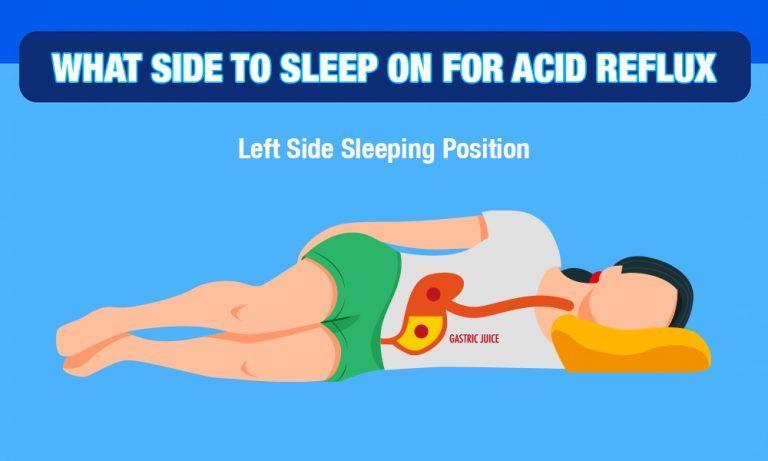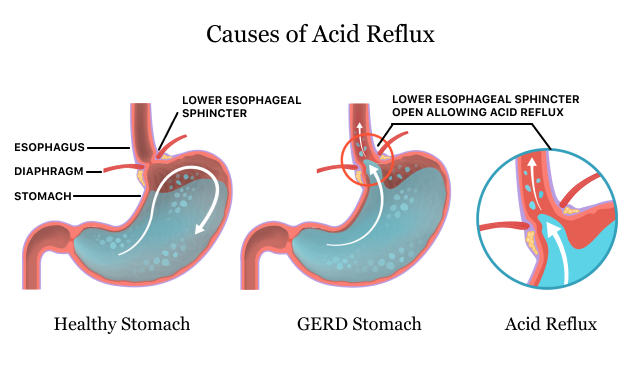What Causes Acid Reflux When Your Sleeping
If you suffer from acid reflux, you know how frustrating and painful it can be. Acid reflux occurs when stomach acid flows back up into the esophagus, causing a burning sensation in the chest and throat. There are a number of things that can cause acid reflux, including certain foods, medications, and medical conditions.
What Side to Sleep on for Acid Reflux?

One of the simplest ways to relieve acid reflux symptoms is to change your sleeping position. Research has shown that sleeping on your left side can help reduce acid reflux symptoms. This is because the lower esophageal sphincter (LES), which is the muscle that prevents acid from flowing back up into the esophagus, is located on the right side of the body. When you sleep on your left side, the stomach is positioned below the esophagus, which allows gravity to keep stomach acid in its place.
It's important to note that sleeping on an incline can also help reduce acid reflux symptoms. This can be done by using a wedge pillow or raising the head of your bed by a few inches.
Acid Reflux Symptoms

The symptoms of acid reflux can vary from person to person, but some common symptoms include:
- Heartburn
- Burping
- Nausea
- Bloating
- Chest pain
- A sour taste in the mouth
If you experience any of these symptoms on a regular basis, it's important to speak with your healthcare provider about the best treatment options for you.
Causes of Acid Reflux
There are a number of factors that can contribute to acid reflux, including:
- Eating large meals or lying down right after a meal
- Being overweight or obese
- Smoking
- Pregnancy
- Hiatal hernia
- Stress
- Certain medications, such as aspirin or ibuprofen
While some of these factors may be out of your control, there are certain lifestyle changes you can make to help reduce your risk of acid reflux. Avoiding large meals, maintaining a healthy weight, quitting smoking, and managing stress are all good places to start.
Treatment Options for Acid Reflux
If you're experiencing acid reflux symptoms, there are a number of treatment options available to you:
- Over-the-counter antacids, such as Tums or Rolaids, can help neutralize stomach acid and provide relief from heartburn.
- H2 blockers, such as Pepcid or Zantac, can help reduce the production of stomach acid.
- Proton pump inhibitors (PPIs), such as Prilosec or Nexium, can also help reduce the production of stomach acid.
- If your acid reflux is caused by a hiatal hernia, surgery may be recommended to correct the problem.
It's important to speak with your healthcare provider about which treatment options may be best for you.
Conclusion
While acid reflux can be a frustrating and painful condition, there are a number of things you can do to manage your symptoms. By making certain lifestyle changes, such as avoiding large meals and maintaining a healthy weight, and using over-the-counter medications or prescription medications as needed, you can find relief from acid reflux symptoms.